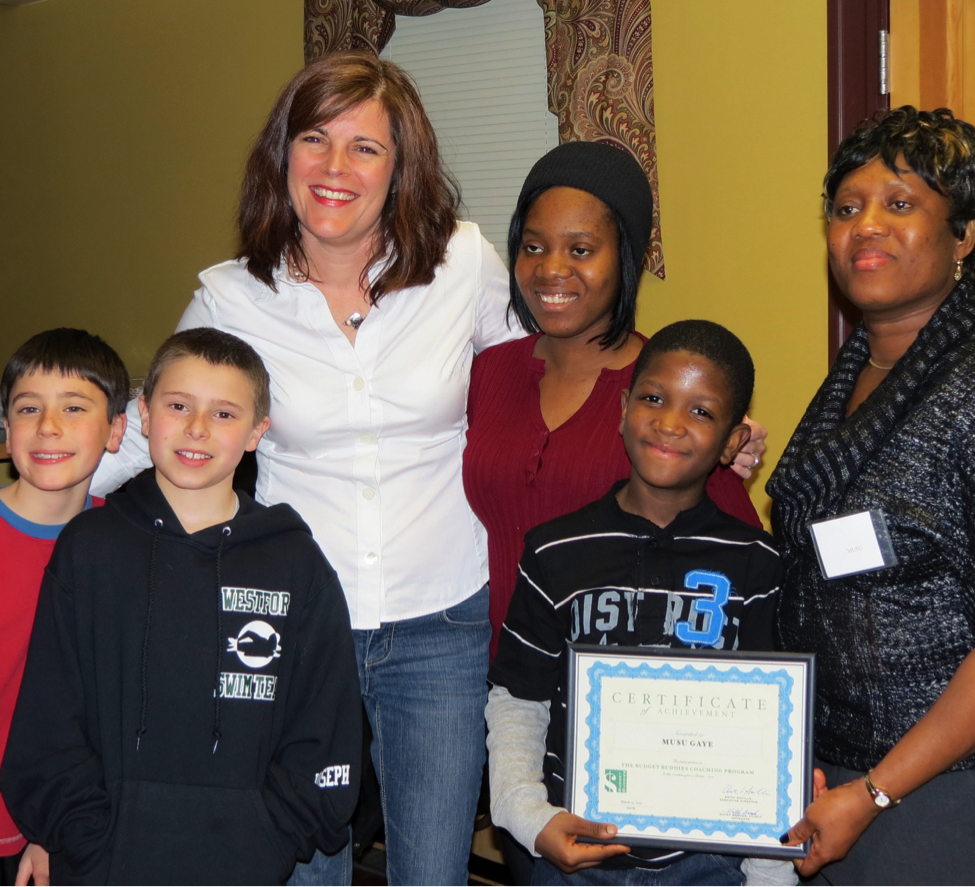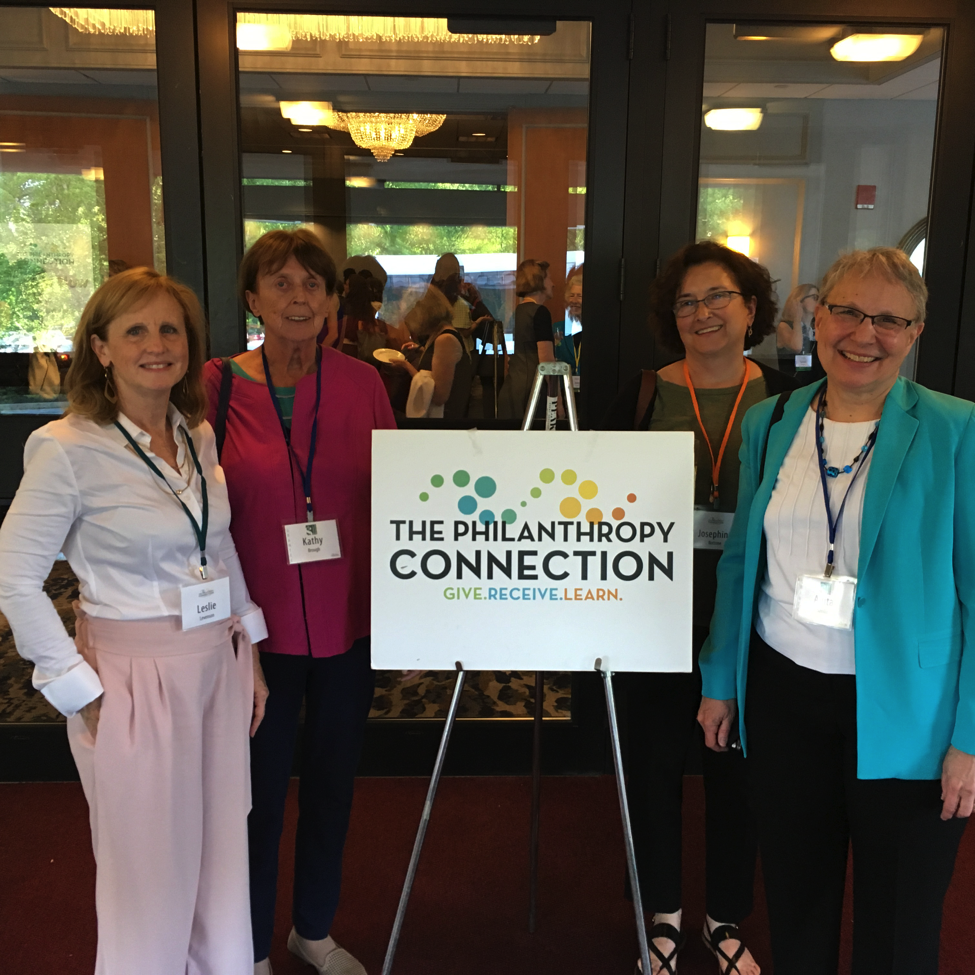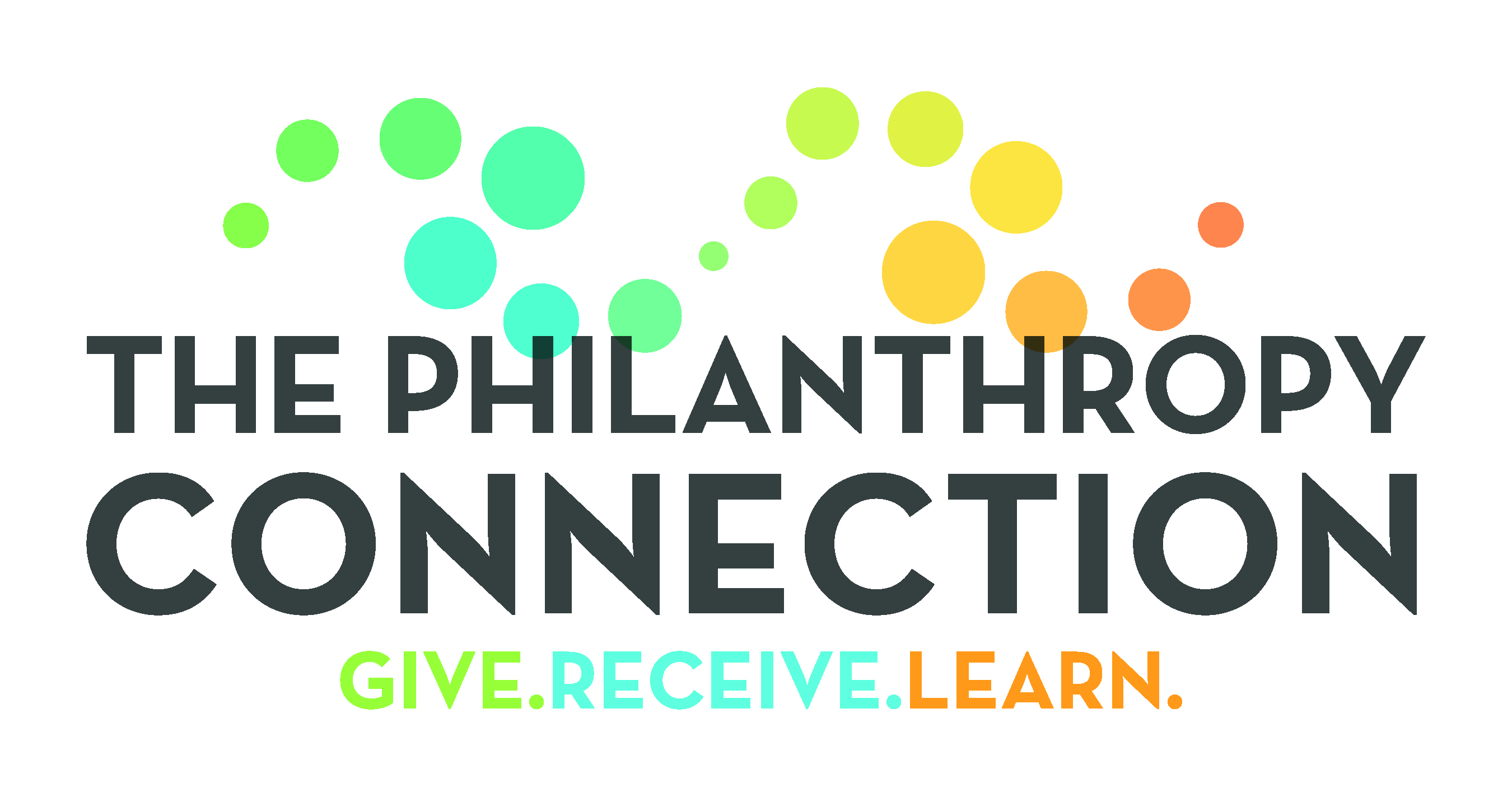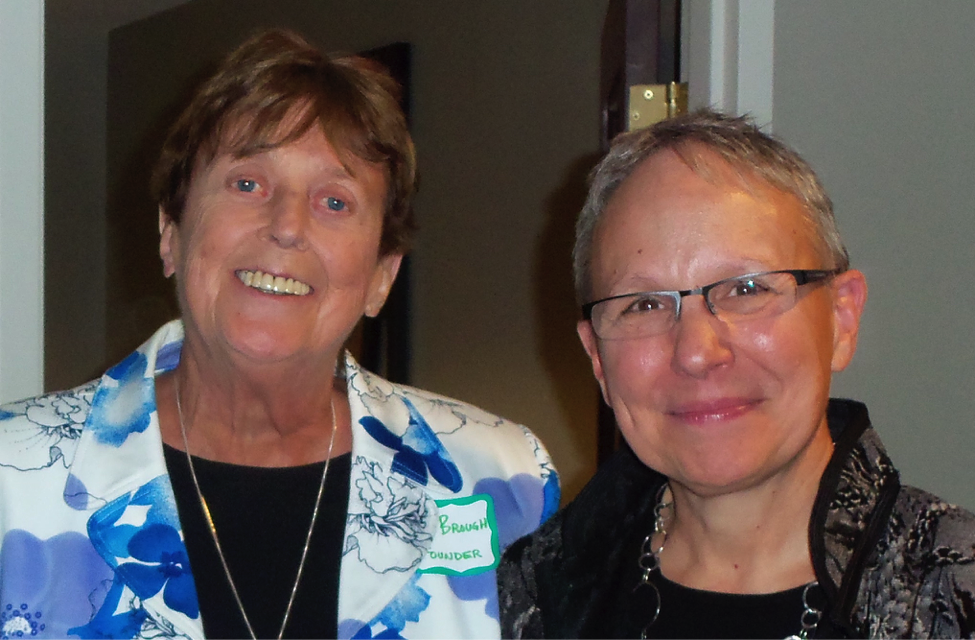The Interview with Kathy Brough and Anita Saville
Kathy Brough and Anita Saville, co-founders of Budget Buddies, spent some time with TPC Liaisons Nancy Hsiung and Christine Nguyen, describing the work Budget Buddies is doing. Budget Buddies offers a comprehensive program of financial education that tailors assistance to each participant’s needs in a highly practical and sustainable way. Low-income women – who typically have limited, if any, access to the financial advisors available to higher-income households – get personalized help with the specific financial issues that keep them from overcoming poverty. These issues may include heavy debt, problems with the IRS, or poor consumer habits.
Tell us a little about yourself and how you came to found/work with Budget Buddies. What was your goal/what are the goals of the organization?
Kathy Brough, our Director of Operations, and I founded Budget Buddies (BB) in 2009 after working for several years together on a variety of political campaigns – starting with Deval Patrick’s first race for governor. I had written about women’s finances for more than 30 years, run a marketing communications business for financial services firms, and launched a financial news service for women called PurseStrings. Before going out on my own, I had been an editor at Fidelity Investments and taught in the Maryland public schools. I had also volunteered with a variety of organizations that support women’s rights and helped launch a chapter of the National Organization for Women in Lowell, MA.
For more than 16 years, Kathy managed the day-to-day operations of an engineering consulting firm – handling accounting, human resources, project planning, budgeting, and cash flow. She established similar systems for a start-up firm that offers customized medical care. In addition, Kathy has volunteered at the Lowell Transitional Living Center, an adult homeless shelter, for more than 22 years. She has served as a board member and the shelter’s treasurer. She also volunteered at an agency serving homeless citizens living with AIDS.
Having worked successfully together as campaign organizers, and sharing a strong interest in helping low-income families and women, Kathy and I began a year’s worth of research in Lowell – talking with various agencies about what they needed and were providing for financial education. We found that these agencies were increasingly interested in a comprehensive program, as their clients typically had not had much training in school or from their families, and that the agencies usually did not have the resources to provide a program themselves. We created BB to fill this gap. We focused on women due to their much greater likelihood to live in poverty and because this was where we had the greatest experience and interest.
You mentioned in your application a number of other organizations that are involved in similar work. What makes BB different?
Most financial education programs simply provide information about banking, saving, and credit. Our curriculum gives special attention to the personal goals and motivations of our “buddies” by encouraging the sharing of individual stories, team building, and group discussion.
Outside of the classroom, our volunteer coaches – all of whom are women – dedicate personal time and attention to each buddy. Many buddies report that the personal support and commitment of a dedicated, unpaid volunteer is a major motivation for completing the program and working toward their long-term success.
 In addition to the high-touch nature of our program, and its attention to the specific needs of low-income women, our program is far more comprehensive than its peers. While many financial education programs last 2-3 months, our standard program lasts 6. Among the few programs that offer mentoring, the mentors (typically paid staff ) are responsible for dozens of participants with whom they may only meet 2-3 times. That compares to the more than two dozen hours of one-to-one coaching our program’s volunteers provide.
In addition to the high-touch nature of our program, and its attention to the specific needs of low-income women, our program is far more comprehensive than its peers. While many financial education programs last 2-3 months, our standard program lasts 6. Among the few programs that offer mentoring, the mentors (typically paid staff ) are responsible for dozens of participants with whom they may only meet 2-3 times. That compares to the more than two dozen hours of one-to-one coaching our program’s volunteers provide.
Our new curriculum for at-risk teens called Girls’ LIFE (Learning Independence through Financial Education) is also far more comprehensive, focused, and relevant than peer programs. Most financial education programs for youth cover money management as part of a larger curriculum for career development and do not have a mentoring component. As in our adult program, the Girl’s LIFE curriculum gives special attention to the personal goals and motivations of our teen buddies by encouraging activities that prompt “aha!” moments. We meet young women where they are and encourage them to be open and honest about their spending and other individual money issues.
Can you tell us a story about how your work has impacted an individual or a family or a community?
The impact of our work can best be understood through the story of Musu and her coach, Christina. Christina, who has a background in finance and accounting, came to BB looking to help her community. Musu fled to America from Liberia with her young son, looking for a better life. Living in a low-income housing district in Lowell, MA, she struggled to overcome the challenges of immigration and poverty as a single parent. A local community group encouraged her to join BB.
“I was nervous to begin this journey, but ready to learn,” says Musu, who adds, “I gained an American sister through BB.”
Musu and Christina met at the program’s “Getting to Know You” workshop and attended the next 11 workshops together. In between the workshops, Christina met individually with Musu to apply the concepts they had learned to Musu’s specific financial issues. Because a disability with her foot made it difficult for Musu to walk, Christina took her to a local supermarket and showed her how to save money by purchasing non-ethnic items. When Musu needed help finding a job, Christina set up and accompanied her to an interview.
Christina also helped Musu with her son, attending several school meetings to get him the services he required. He has since moved to a school that better suits his needs and is flourishing there.
With Christina’s help Musu enrolled at Middlesex Community College, studying to become a teaching assistant. Once a kindergarten teacher in Liberia, she currently has a part-time job working with preschoolers and has become Red Cross certified. Her relationship with Christina has also played a key role in achieving citizenship for her and her son.
When they became citizens “It was a day of hope, resilience, and pride,” says Christina. “Musu and her son have faced a lot of adversity, both in the United States and in Africa. But they continue to move ahead. I look forward to seeing where their lives lead next.”
Tell me about how TPC’s grant is being used. What is the impact of TPC funding?
First, we are so grateful to receive funding from TPC a second time. This year’s grant will help fund costs for 5 programs in our recently launched Boston Regional Hub and our home communities of Lowell, Lawrence, and Haverhill. At least one of these programs will be a pilot for Girl’s LIFE. In FY19, which began July 1, we plan to run a total of 18 programs (up from 14 in FY18 and 12 in FY17) that will serve approximately 175 low-income women and teens.
Each program serves 10-12 women with:
1. Workshops in which buddies learn to make budgets, handle credit, manage bank accounts, eat nutritiously on a budget, and protect themselves against fraud.
2. Mentoring with a volunteer coach who works with one buddy to address her unique money management goals and challenges. Many coaches devote significantly more time – helping their buddies pursue job opportunities, shop effectively, or complete other tasks that enhance their financial stability.
Additionally, TPC’s grant will support a pilot of three 10-week Girls’ LIFE programs and BB’s expansion of its Regional Hub model in which dedicated coordinator manages our program in areas beyond our immediate reach.
What else do you hope to gain from your relationship with TPC? Are there other ways that TPC members could help you?
 We have been truly impressed with the exceptional interest that TPC takes in its grantees. In October we participated in a panel discussion about access to education that both increased our visibility among potential volunteers and gave us a greater understanding about the work two other TPC grantees are doing in this field. Leslie Levenson, a TPC member who helped conduct the site visit during our application review, has now joined our Boston Advisory Committee and is working with us on a spring fundraiser. The fundraiser called LUNAFEST Boston will be held on April 24 at the Wimberly Theatre. We would welcome any other TPC member who would like to join the Advisory Committee.
We have been truly impressed with the exceptional interest that TPC takes in its grantees. In October we participated in a panel discussion about access to education that both increased our visibility among potential volunteers and gave us a greater understanding about the work two other TPC grantees are doing in this field. Leslie Levenson, a TPC member who helped conduct the site visit during our application review, has now joined our Boston Advisory Committee and is working with us on a spring fundraiser. The fundraiser called LUNAFEST Boston will be held on April 24 at the Wimberly Theatre. We would welcome any other TPC member who would like to join the Advisory Committee.
We hope TPC will help spread the word about our fundraiser and, as with our previous grant, help us recruit coaches and workshop presenters. (We especially need those who speak Spanish.) We are also asking members to donate used tablets that we can use to add online resources to our workshop curriculum.
What is most gratifying about your work? Is there an example that stands out for you?
There are two aspects of this work that stand out – one we expected, and another we didn’t. Women who are financially empowered are better able to leave abusive relationships or weather the loss of a job, and they become role models for their families and communities. A teen girl who knows the basics of money management is more likely to break the cycle of poverty as an adult, and more inclined to pass financial skills down to the next generation.
What we didn’t foresee are the lessons that our volunteers learn. They gain a greater understanding of the inter-related factors that bring and hold women in poverty, while seeing the many things they share in common with the women they are helping.
Tell us why BB recently expanded its program to serve girls.
There is substantial research showing that U.S. teens, like U. S. adults, often lack the financial education to consistently make sound financial decisions. Teens who do learn about managing savings and checking accounts are more likely to open both types of accounts, to have a budget and save.
Financial illiteracy is rampant among children living in low-income communities. The National Endowment for Financial Education reports that in 2017, 3% of students from schools in lower-income communities had the highest level of financial literacy versus 45% from higher-income communities.
We strongly believe that full financial empowerment for women requires the teaching of core financial principles to girls on the cusp of their independent economic lives.
What’s next for BB? Where and how do you see the organization growing?
We expect to use valuable lessons from the Girl’s LIFE pilots in a larger roll out, and hope to expand our Spanish language programming and our regional hub in Boston.
Over the next 5 years, we plan to launch 2-3 more hubs including one immediately west of Boston, thanks to a grant from Foundation for MetroWest. We are taking advantage of these opportunities both thoughtfully and deliberately – making sure that each new program will be as successful as others we have provided. Over time, we believe our model can be implemented throughout Southern New England – and probably beyond.

